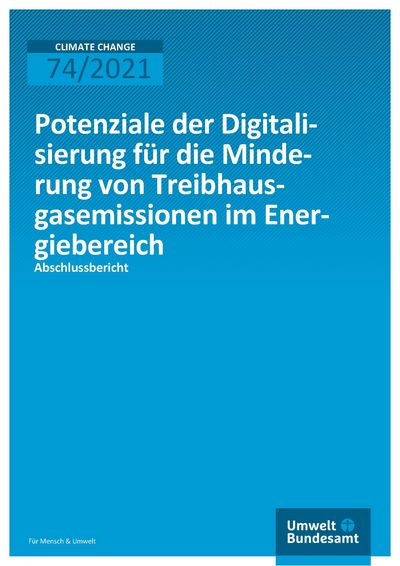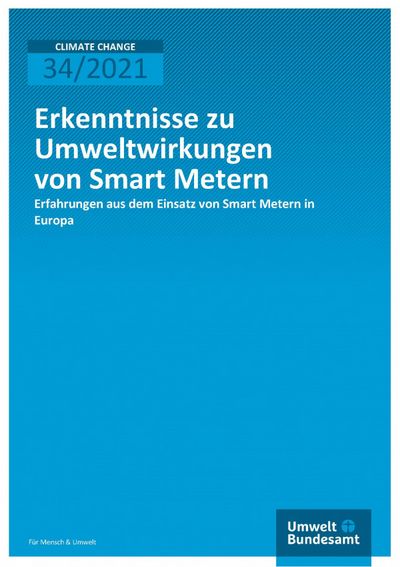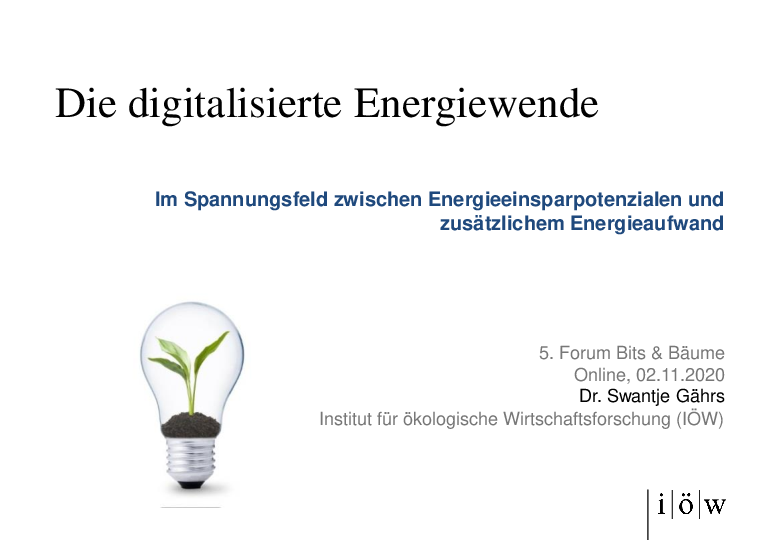Climate Protection Potential of Digitalization Potentials of digitalization for the reduction of greenhouse gas emissions in the energy sector
Digitalization is a future trend of our society – also in the energy sector. Driven by political goals and processes, legal foundations and market players, a lot of digital innovations from electricity meters, to controlling of heating systems and automated industrial processes are discussed and implemented. In the forefront of the debate are the opportunities that come with digitalization: The energy suppliers and new players in the market promise new business models, network operators see a way to meet the challenges of future grid control and societal stakeholders cautiously formulate a possible emancipation of the Citizens in the production or purchase of energy, for example through blockchain technology. It is assumed that digitalization will contribute to enabling energy supply with a high proportion of renewable energies and to achieving the climate protection goals. The environmental effects of digitalization in the energy sector have so far only been discussed in isolated cases.
Against this background, the project “Potentials of digitalization for the reduction of greenhouse gas emissions in the energy sector” aims to contribute to the evaluation of the environmental effects of digitization in the energy sector such as CO2 emissions through energy consumption and resource use through additional technology, to highlight the environmental opportunities and risks and to develop policy recommendations on this basis. In order to assess the positive and negative effects of digitalization in the energy sector from the perspective of climate protection and the environment, a methodology will be developed based on existing work. As far as possible, the environment-related effects are quantified. Representative case studies illustrate digital applications and the environmental impact of these applications is determined by the methodology developed. These case studies form the basis for assessing the climate and environmental impact of digitalization across the energy sector and for formulating policy recommendations that support environmental and, most importantly, climate-sensitive digitalization.
IÖW Project Team
- Hannes Bluhm
- Dr. Elisa Dunkelberg
- Jannes Katner
- Dr. Julika Weiß







